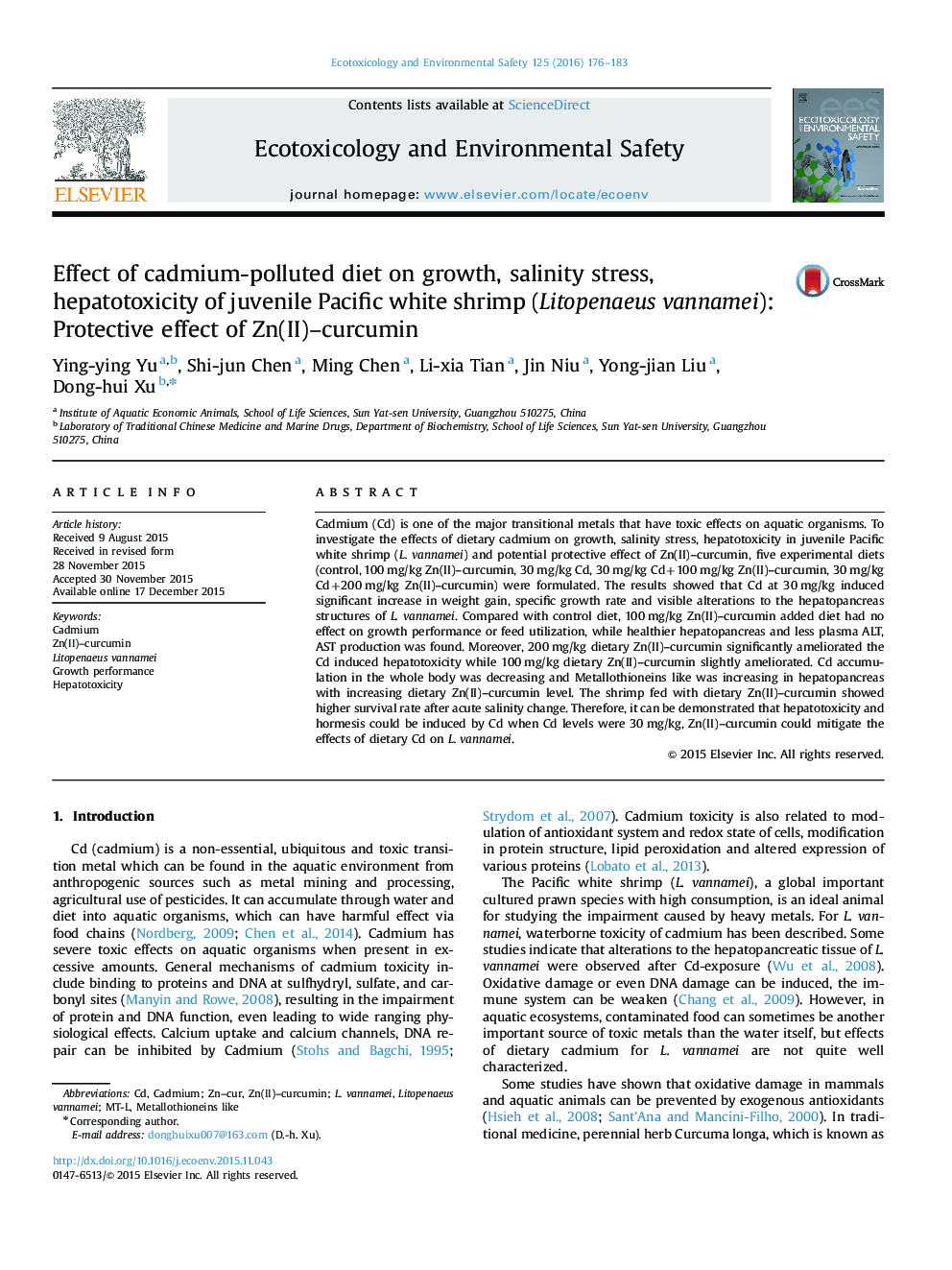| کد مقاله | کد نشریه | سال انتشار | مقاله انگلیسی | نسخه تمام متن |
|---|---|---|---|---|
| 4419455 | 1618938 | 2016 | 8 صفحه PDF | دانلود رایگان |

• Dietary exposure to Cd (30 mg/kg) could cause histopathological changes, oxidative stress and hormesis in the L.vannamei..
• Dietary Zn(II)-curcumin may ameliorated histopathological changes, oxidative stress caused by Cd (30 mg/kg).
• Dietary Zn(II)-curcumin may ameliorated these effects by increased MT-L concentration in the hepatopancreas and decreased Cd accumulation in the whole body.
Cadmium (Cd) is one of the major transitional metals that have toxic effects on aquatic organisms. To investigate the effects of dietary cadmium on growth, salinity stress, hepatotoxicity in juvenile Pacific white shrimp (L. vannamei) and potential protective effect of Zn(II)–curcumin, five experimental diets (control, 100 mg/kg Zn(II)–curcumin, 30 mg/kg Cd, 30 mg/kg Cd+100 mg/kg Zn(II)–curcumin, 30 mg/kg Cd+200 mg/kg Zn(II)–curcumin) were formulated. The results showed that Cd at 30 mg/kg induced significant increase in weight gain, specific growth rate and visible alterations to the hepatopancreas structures of L. vannamei. Compared with control diet, 100 mg/kg Zn(II)–curcumin added diet had no effect on growth performance or feed utilization, while healthier hepatopancreas and less plasma ALT, AST production was found. Moreover, 200 mg/kg dietary Zn(II)–curcumin significantly ameliorated the Cd induced hepatotoxicity while 100 mg/kg dietary Zn(II)–curcumin slightly ameliorated. Cd accumulation in the whole body was decreasing and Metallothioneins like was increasing in hepatopancreas with increasing dietary Zn(II)–curcumin level. The shrimp fed with dietary Zn(II)–curcumin showed higher survival rate after acute salinity change. Therefore, it can be demonstrated that hepatotoxicity and hormesis could be induced by Cd when Cd levels were 30 mg/kg, Zn(II)–curcumin could mitigate the effects of dietary Cd on L. vannamei.
Journal: Ecotoxicology and Environmental Safety - Volume 125, March 2016, Pages 176–183